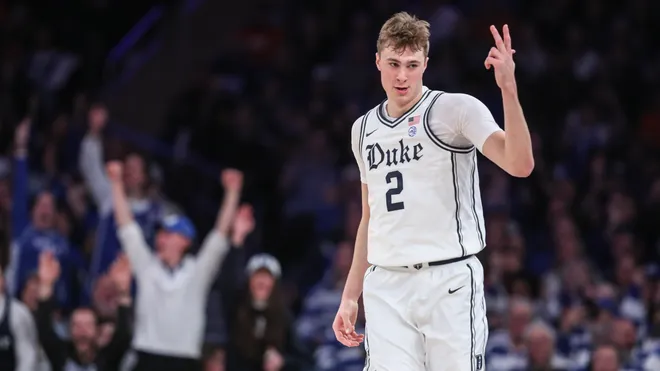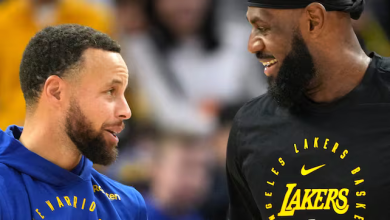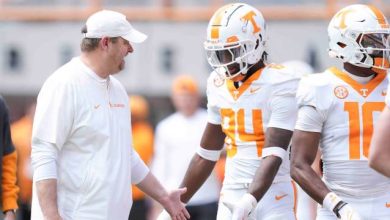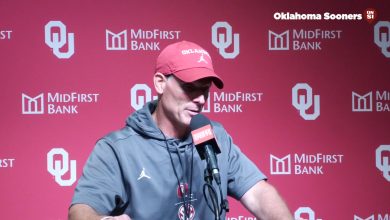Staff Situation with the Duke Basketball Coach “Not Well Enough Thought Out”

In the world of college basketball, where a single decision can drastically alter the trajectory of a program, the staff situation surrounding a coaching hire or reshuffle often generates as much attention as the players themselves. The recent situation at Duke University, specifically with their basketball staff, has raised eyebrows among both fans and experts alike. A critical evaluation of how Duke’s basketball coach, Jon Scheyer, has managed the makeup of his staff has led some insiders to question the decision-making process. With the program’s future at stake and the expectations of a national powerhouse looming over every move, it seems that the current staff structure may not have been “thought out well enough,” as some have claimed. In this article, we will delve into the complexities of the staff situation, the possible ramifications of a less-than-optimal staff composition, and how this could affect the Duke Blue Devils’ chances in upcoming seasons.
Duke Basketball: A Legacy of Success
Duke University’s basketball program has long been synonymous with success, prestige, and elite talent. Under the legendary leadership of Mike Krzyzewski, the Blue Devils built an empire in college basketball, capturing five national championships and consistently finishing at the top of the ACC standings. The Duke program became a blueprint for excellence, known not only for its exceptional talent development but also for its impeccable staff. Coach K’s coaching tree included some of the best minds in basketball, both past and present, and his leadership became a guiding light for both current players and aspiring coaches alike.
When Coach K retired in 2022, the question on everyone’s mind was who could follow in his legendary footsteps. The university ultimately decided on Jon Scheyer, a former Duke player who had been an assistant coach under Krzyzewski for several years. Scheyer’s hire was a natural choice for many, given his intimate knowledge of the program and the fact that he was seen as the heir apparent to the throne. However, the transition from Krzyzewski to Scheyer was never going to be seamless, and a major part of this transition is the way the coaching staff would be structured under Scheyer’s leadership.
The Staff Situation Under Jon Scheyer
At first glance, the structure of Scheyer’s coaching staff seemed reasonable. After all, Scheyer had been with the program for years and knew the ins and outs of Duke basketball. He was familiar with the recruiting pipeline, the program’s culture, and the expectations placed on both the players and the coaching staff. But as time has gone on, some of the decisions made in terms of staff composition have raised concerns about whether they were properly considered.
One area where critics have pointed to potential shortcomings is the hiring of assistant coaches. Duke’s coaching staff, as is the case with most top-tier programs, is composed of a group of assistant coaches who manage various aspects of the game, including offense, defense, recruiting, and player development. The effectiveness of these assistants plays a significant role in a program’s overall success, and with a new head coach in Scheyer, it was vital that he surrounded himself with a highly capable group.
But early in his tenure, it became clear that some of the hires may not have been “well enough thought out,” as many insiders have described. While some assistant coaches have had their successes in other programs, they have yet to prove themselves on the grand stage of Duke basketball. The lack of high-profile assistant coaches—individuals who bring proven track records in developing players or recruiting top-tier talent—has been a point of contention.
Recruiting: The Lifeblood of Duke Basketball
At Duke, as with any major college basketball program, recruiting is the cornerstone of success. Coach K was known for his ability to identify and recruit top talent, often landing elite players from across the country. As Scheyer took the reins, the pressure was on to continue that tradition, and much of the recruiting strategy fell on his staff.
This is where the staff situation becomes more critical. Recruiting is not simply about finding talented players; it’s about building relationships, offering the right guidance, and fostering an environment where these players feel they can grow both on and off the court. Some critics argue that the current staff structure has not maximized the recruiting efforts at Duke. While the Blue Devils have continued to land five-star prospects—such as Cooper Flagg in the 2024 class—the overall success in attracting the top talent may not be as consistent as it was under Coach K.
The inability to land certain key recruits in critical classes has raised eyebrows. The 2025 class, for example, has seen several top recruits commit elsewhere, and many attribute this to the perceived lack of seasoned recruiters on Scheyer’s staff. Assistant coaches, especially those tasked with leading recruiting efforts, have a significant influence in a program’s success in this area. Without established relationships or proven success in recruiting top talent, the program risks falling behind in the ultra-competitive world of NCAA basketball recruiting.
Player Development: A Critical Piece to the Puzzle
While recruiting is an obvious priority, player development is just as important. Duke has always been a program that focuses on developing players into NBA-caliber talent. Under Coach K, the Blue Devils produced numerous NBA stars, and the development of players was seen as a crucial part of the program’s philosophy.
With a staff that wasn’t “well enough thought out” in terms of experience, some players have struggled to reach their potential under the new regime. The Duke roster, while talented, has not seen the same level of consistent development that was once the hallmark of the program. Critics point to the fact that some players have not taken the same strides in their growth as they might have under a more experienced coaching staff.
This is particularly noticeable when it comes to the team’s offensive and defensive systems. Duke, under Coach K, had a well-established system that players could quickly adjust to and execute on the floor. Scheyer, while being a former Duke player himself, has struggled to implement a cohesive offensive system that takes full advantage of his players’ strengths. Without the assistance of veteran coaches who bring deep tactical knowledge, the Blue Devils have at times looked disjointed and unpolished on the court.
The Challenge of Handling Pressure
Duke, as one of the premier basketball programs in the nation, is always under intense scrutiny. Every game, every play, and every decision is magnified. For a first-year head coach like Jon Scheyer, this pressure is amplified, and the staff becomes an even more critical factor in helping manage the expectations.
The failure to build a stronger, more experienced coaching staff may be hindering Scheyer’s ability to handle this pressure effectively. The high expectations placed on him to maintain Duke’s elite status are not just about his abilities as a coach but also about the support structure he has in place. In moments of crisis—whether it’s a late-game situation or an unexpected loss—having a staff with experience can make all the difference. Without that guidance and leadership on the sideline, Scheyer has been left to shoulder much of the burden on his own.
What Can Be Done Moving Forward?
Looking ahead, there are several adjustments that could help rectify the current staff situation. First and foremost, Scheyer needs to address the assistant coaching staff, ensuring that those in key roles, particularly in recruiting and player development, bring proven success to the table. Whether that means adding more seasoned coaches with extensive experience in the college basketball landscape or making strategic changes to current staff members, the coaching staff must become an asset rather than a question mark.
Second, Scheyer must continue to refine his offensive and defensive schemes, focusing on implementing systems that maximize the players’ strengths. Coaching is not just about X’s and O’s; it’s about building trust and creating a culture of accountability. By refining these systems and ensuring that the players are consistently developed, Duke can return to its status as one of the most efficient and well-coached teams in the country.
Lastly, while the pressure of being Duke’s head coach cannot be underestimated, Scheyer must lean on his staff and establish a more collaborative environment. By empowering his assistant coaches and giving them the autonomy to work with the players and make crucial decisions during games, he can alleviate some of the burden that currently falls on his shoulders.









